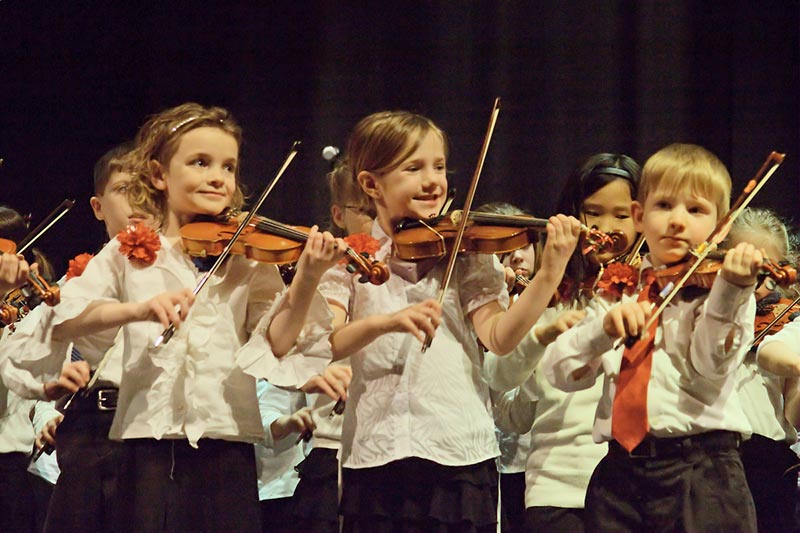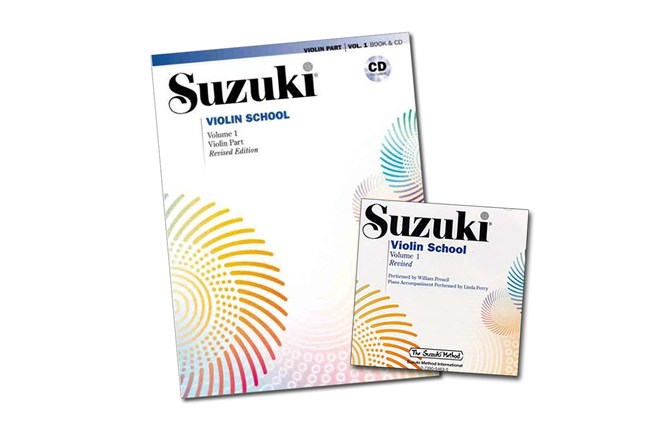Fall registration for 2018/2019 classes are open for enrollment
Sign Up & Register
The Suzuki Method
The Suzuki Method is based on the principle that all children possess ability and that this ability can be developed and enhanced through a nurturing environment. All children learn to speak their own language with relative ease and if the same natural learning process is applied in teaching other skills, these can be acquired as successfully. Suzuki referred to the process as the Mother Tongue Method and to the whole system of pedagogy as Talent Education.
Shinichi Suzuki (1898-1998) was born in Japan and studied western music in Germany in the 1920s. He first began teaching young children in Japan in the 1930s and further developed his ideas and philosophy of teaching during the post-war period. His approach to teaching has now spread to many parts of the world and is proving increasingly successful everywhere. Because he was a violinist, he first applied his ideas to the teaching of violin, but it has since been used with many other instruments, in nursery school teaching and other more general areas.
The important elements of the Suzuki approach to instrumental teaching include the following:
- An early start (aged 3-4 is normal in most countries)
- The importance of listening to music
- Learning to play before learning to read
- The involvement of the parent
- A nurturing and positive learning environment
- A high standard of teaching by trained teachers
- The importance of producing a good sound in a balanced and natural way
- Core repertoire, used by Suzuki students across the world
- Social interaction with other children: Suzuki students from all over the world can communicate through the language of music
Goals of the Suzuki Method
The Suzuki method has enabled many children to play music to a high standard. Substantial numbers of Suzuki trained students have indeed become highly acclaimed professional musicians. However, the training of professionals is not the main aim: the emphasis throughout is on the development of the whole child, on education through music. Dr Suzuki himself always said that his wish was to foster the human qualities in the child. At every opportunity he called on politicians, teachers and parents to ensure that the full potential of every child is developed:
I want—if I can—to get education changed from mere instruction to education in the real sense of the word—education that inculcates, brings out, develops the human potential, based on the growing life of the child. That is why I am devoting my efforts to furthering Talent Education: what a child becomes depends entirely on how he is educated. My prayer is that all children on this globe may become fine human beings, happy people of superior ability, and I am devoting all my energies to making this come about, for I am convinced that all children are born with this potential.


